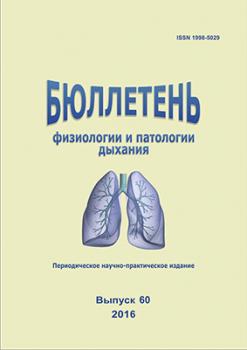Blagoveschensk, Blagoveshchensk, Russian Federation
Blagoveschensk, Blagoveshchensk, Russian Federation
Blagoveschensk, Blagoveshchensk, Russian Federation
To develop the method of early diagnostics of the threat of miscarriage under primary placental insufficiency in 102 women at influenza virus A(HN2) there was studied the vessel resistance in the right and left uterine arteries, ultrastructure of uterine and villous chorion; in the blood serum there were defined titers of antivirus antibodies, concentration of mean molecular peptides, seromucoid and circulating immune complexes (the main group). 30 women with physiologic course of pregnancy were included in the control group. Among the patients of the main group there were three subgroups. The first group had 36 patients with influenza virus A(H3N2) (antibody titers were 1:4-1:16), the second group had 34 pregnant women with influenza infection (antibody titers were 1:8-1:32), and the third group included 32 women with influenza virus А(Н3N2) (antibody titers were 1:32-1:128), in whom clinical and echographic signs of the threat of miscarriage developed at the 6-8th day of the disease. It was found out that in the patients of the third group at the 2-4th day of the virus infection in the blood serum there was the increase of the contents of mean molecular peptides till 0.290±0.0011 units of optical density, of seromucoid till 0.119±0.0011 units of optical density and of circulating immune complexes till 0.221±0.0021 units of optical density (in the second subgroup it was 0.259±0.0013 units of optical density, р<0.001; 0.115±0.0013 units of optical density, р<0.001; 0.190±0.0020 units of optical density, р<0.001, respectively). This caused the increase of the value of systolic-diastolic ratio in the right uterine artery till 3.18±0.009 standard units, and in the left till 3.20±0.015 standard units (in the second group it was 2.97±0.014 standard units, р<0.001 and 2.96±0.013 standard units, р<0.001, respectively) and it led to the development of clinical-ultrasound signs of the threat of miscarriage at the 6-8th day of the infectious disease in 100 % of women.
threat of miscarriage, primary placental insufficiency, influenza virus A (H3N2), pregnancy, uterine arteries, uterine, chorion, titers of antivirus antibodies, endotoxemia, circulating immune complexes.
1. Gazhonova V.E. Ultrasound diagnosis in gynecology. Moscow: MEDpress-inform; 2005 (in Russian).
2. Gazieva I.A., Chistyakova G.N., Remizova I.I. The predictive significance of the parameters of the functional state of the endothelium and regulation of angiogenesis in the first trimester of gestation in development of placental insufficiency and early reproductive losses. Voprosy ginekologii, akusherstva i perinaologii 2015; 14(2):14-23 (in Russian).
3. Gorikov I.N. Early placentar insufficiency in patients with influenza during I gestation trimester. Bûlleten´ fiziologii i patologii dyhaniâ 2005; 20:12-15 (in Russian).
4. Gorikov I.N. Pathogenesis of changes of blood flow in uterine arteries and of ultrasound picture of chorion at influenza А(Н3N2) in women in the first trimester of pregnancy. Bûlleten´ fiziologii i patologii dyhaniâ 2012; (44):79-84 (in Russian).
5. Dolgushina N.V., Makatsariya А.D. Viral infections in pregnancy. Moscow: Triada-Х; 2004 (in Russian).
6. Маkarov О.V., Аleshin V.А., Savchenko Т.N., editors. Infections in obstetrics and gynecology. Moscow: МЕDpress-inform; 2007 (in Russian).
7. Lutsenko М.Т., Solovieva А.S., Аndrievskaya I.А. Mechanisms of change of the immune system in pregnant women with herpes virus infection. Blagoveshchensk; 2007 (in Russian).
8. Samsonov V.P., Lutsenko M.T., Novik E.V. Diagnosing of endotoxicosis different degrees at lungs abscess: methodological recommendations. Blagoveshchensk; 1988 (in Russian).
9. Strizhakov A.N., Bunin A.T., Medvedev M.V. Ultrasound diagnostics in the obstetrics practice. Moscow: Meditsina; 1990 (in Russian).
10. Digeon M., Laver M., Riza J., Bach J.F. Detection of circulation immune complexes in human sera by simplified assayes with polyethylene glycol. J. Immunol. Methods 1977; 16(2):165-183.





